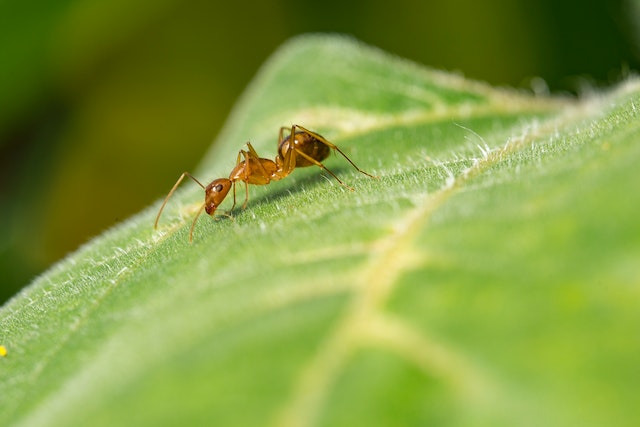
Do ants need to sleep? Ants do actually sleep, but not all at once.
There are very few living organisms that don’t need to sleep. However, they all do it in different ways and there are many different definitions of what sleep is. Bacteria don’t sleep. Although they are tied to a circadian rhythm and they spend some time making food and some time running other physiological processes. Arachnids also don’t sleep, but they do rest. Spiders can lower their metabolic rate to conserve energy and they reduce their activity. They do not have eyelids, so they cannot close their eyes, but they become very still and rest. They are still alert, though, and can rush or attack as soon as prey is sighted.
Plants and flowers don’t sleep, but they also follow circadian rhythms. Obviously, they depend on the sun to photosynthesize, which means they can only do it during the day. When the sun goes down, trees drop their branches and plants furl up their leaves and flowers. They are not sleeping, they have just changed the activity that they are doing. They use the night time to redistribute glucose throughout themselves.
Dolphins are another animal that don’t need to sleep, although that is not completely true. It would be better phrased as they don’t need to completely shut down their brain. Dolphins have the ability to sleep half of their brain at a time. The reason for this is that dolphins are not unconscious breathers, as we are. They have to consciously breathe, in the same way you can consciously pick up cup. If dolphins went to sleep for a long time in the same way that we do, they would suffocate. To avoid this, they sleep with one half of their brain and keep the other awake so they can breathe and look out for predators and dangers. They keep the opposite eye open as well. Dolphins can still swim while they sleep, but they usually float near the surface.
Another interesting animal that doesn’t appear to sleep is the Alpine Swift. These birds take to the air and fly for up to ten months without landing. They eat insects and they constantly fly. One of the reasons they have evolved to do this is to keep out of the reach of predators. Researchers have put trackers on the birds and they have discovered that sometimes the birds fly very high and reach an altitude where they can glide. Then they sleep for very short periods.
So, do ants need to sleep? A study of fire ants showed that worker ants take one-minute naps at irregular intervals throughout the day. They averaged about 250 naps, which is 4 hours and 48 minutes of sleep. When they are napping, they stop where they are and don’t move. Then they awake and go about their business.
There is a reason for this style of sleeping. The irregular pattern means that about 80% of the workers in the ant colony are awake at any one moment. That is vital because they protect the hive as well as find food and enlarge the hive. If they were all to sleep at the same time, the hive would be very vulnerable.
Queen ants, on the other hand, do seem to sleep. The queen ants in the same fire ant colony would sleep for about 6 minutes at a time, up to 90 times a day. That is about 9 hours of sleep. This could be the reason why fire ant queens live for up to 7 years while the worker ants only live for about six months. The queens might also dream. Their antennae have been observed twitching while they are asleep, in the same way that our eyes move when we are asleep and dreaming. I wonder what an ant would dream about. Probably my sandwich.
The average colony of ants can have up to 500,000 workers. That means 100,000 of them are probably sleeping at any one time. A colony also has several queen ants. The queens synchronize their sleeping patterns and usually huddle together when they are asleep, spreading out again when they awake. One reason they need more sleep than the workers is that they lay approximately 800 eggs a day. Over a 7-year life, that can add up to 2 million eggs. And this is what I learned today.
Sources
https://www.popsci.com/blog-network/our-modern-plagues/do-microbes-sleep/
https://www.eurekalert.org/news-releases/731506
https://fireant.tamu.edu/learn/biology/
http://news.bbc.co.uk/earth/hi/earth_news/newsid_8100000/8100876.stm
https://medium.com/a-dose-of-curiosity/do-ants-sleep-c9c2fd001d96
